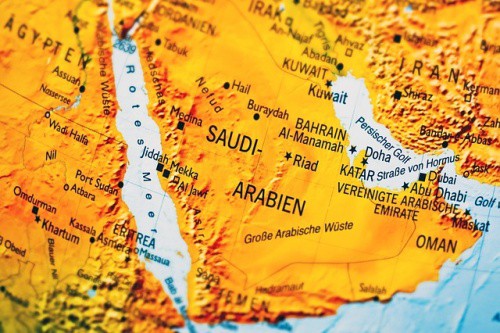Saudi Arabia plans to release full 6GHz to Wi-Fi for license-exempt use, delivering high-speed wireless broadband that is expected to bring new digital services and applications such as IoT, robotics and virtual reality to the Middle Eastern nation and make them more commercially available.
The Kingdom of Saudi Arabia’s Communications and Information Technology Commission (CITC) yesterday announced their ground-breaking spectrum designation of the entire 6 GHz band (5.925-7.125 GHz) for license-exempt use. Paving the way for Wi-Fi 6E & Wi-Fi 7, Saudi Arabia becomes the first country in the Middle East, Europe, or Africa to assign all 1200 MHz of the 6 GHz band for unlicensed use. The Kingdom now has more than 2 GHz of spectrum for Wi-Fi operations – the most mid-band spectrum designated by any country globally.
The was decision after a comprehensive consultation, significant engagement with various global stakeholders, and trials with Wi-Fi 6E equipment furnished by Wireless Broadband Alliance (WBA) members Broadcom and Intel. The trials demonstrated that Saudi Arabia could advance its digital ambitions, achieving 2 Gigabits per second speed in laptop computers, while enabling continued operations with existing users of the 6 GHz band.
Well-positioned for Wi-Fi 7 deployments
WBA lauded the CITC’s latest move saying it hasten the country’s digitalisation by enabling next-generation services.
“The CITC ruling underlines how important 6 GHz spectrum is in achieving the Kingdom’s vision to transform Saudi Arabia into a digital society. Overnight, the Kingdom of Saudi Arabia has become a model for how the rest of the world can use spectrum policy to ensure that their schools, health care providers, businesses, citizens and visitors can provide affordable, reliable, multi-gigabit connectivity and take full advantage of Wi-Fi and 5G,” said Tiago Rodrigues, WBA CEO.
With Saudi Arabia joining the ranks of the US, South Korea, Brazil, and others, in designating all 1200 MHz of the 6 GHz band for license-exempt use, the WBA hopes that other regulators in the region will take note and make a similar commitment to advancing their own wireless broadband capabilities. This will lead to global harmonisation, which is key to scale, accelerating technology development, and reducing costs for end-users.
Rodrigues added: “The CITC’s decision is a clear global milestone. Saudi Arabia has set out a leading position for Europe, the Middle East and Africa and raised the bar for the rest of the world. The WBA strongly recommends that regulators in other countries pay close attention to Saudi Arabia’s example of allocating the entire 6GHz band for license-exempt use.
“The release of the full 1200 MHz provides enhanced flexibility for both indoor and outdoor deployments and lays the foundation for the Kingdom’s citizens and businesses to set a path for the adoption of Wi-Fi 6E and Wi-Fi 7 when that technology debuts. It has been a pleasure to collaborate with CITC, and I look forward to further collaboration by enabling OpenRoaming trials, which will enable secure and seamless roaming.”
By making all 1200 MHz of the band available, the Saudi’s have created a wireless superhighway with seven non-overlapping 160 MHz channels of green field spectrum for Wi-Fi 6E devices to use. Saudis will enjoy high reliability Wi-Fi that doubles the speeds and halves the latency compared to the capacity-constrained 2.4 GHz and 5 GHz bands.
The country will also be well positioned to lead in Wi-Fi 7 deployments when it becomes available. With this broad-based designation, Wi-Fi 7 deployments using 320 MHz wide channels will get up to 5 gigabits per second in mobile devices at very low latencies. This sets the stage for the Kingdom to further reap the benefits of contextual Internet, integrated communications services, and immersive AR/VR for telemedicine, education and worker training.
Industry players optimistic response
The WBA annual report states that members of the Wi-Fi industry said that the 6 GHz band is a critical component of their network strategy, with 78% of network operators seeking to take advantage of this spectrum to deliver high speed wireless broadband.
It is unsurprising therefore that WBA members are enthusiastic in welcoming the CITC ruling.
“We commend CITC for its visionary designation of 1200 MHz of the 6 GHz spectrum for Wi-Fi. This truly brings the best out of Wi-Fi 6E for gigabit broadband. Equally important are the exemplary rules crafted for portable Wi-Fi devices to disrupt fields like telemedicine and education. We are pleased that the Saudi Arabia Wi-Fi 6E trials that we enabled jointly with Intel catalysed this momentous designation by the CITC. We are also happy to note that Saudi Arabians can instantly benefit from the Broadcom powered Wi-Fi 6E ecosystem of devices available in the market today,” said Vijay Nagarajan, vice president of Marketing, Wireless Communications and Connectivity Division, Broadcom .
Eric McLaughlin, vice president, Client Computing Group, and General Manager, Wireless Solutions Group, Intel, echoed the same sentiment.
“We would like to congratulate the CITC on its transformative direction to approve the entire 6 GHz band for unlicensed use. With this new spectrum allocation Saudi Arabia is well positioned to lead the regional transition to Wi-Fi 6E and future Wi-Fi 7 technologies that will broadly enable ultra-low latency and gigabit-speed Wi-Fi capabilities to meet the growing needs across all market segments,” he said. “We are honoured to have been able to contribute to the Wi-Fi 6E trials which helped support CITC’s historic decision alongside our industry colleagues at Broadcom and the WBA.”
Matt MacPherson, Wireless CTO at Cisco, said: “We commend this pioneering move to create a more connected future. Wi-Fi 6E unleashes the full potential of Wi-Fi allowing a host of new devices and services to emerge. It means more speed, higher-data rates, and better security for a multitude of new capabilities and applications including VR, robotics, and IoT. “



